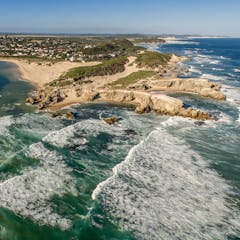
Articles on Water pollution
Displaying 41 - 60 of 183 articles

Nigeria generates 2.5 million tonnes of plastic waste yearly. Research and public enlightenment can help address the problem.

Belfast needs to rid its infrastructure of lead water pipes and raise public awareness of the serious health issues caused by excess levels of lead in the water.

For the first time, we calculated Australia’s share of planetary environmental boundaries and found we’ve shot past three already.

Cleaning up the Great Lakes was a big job when the US and Canada undertook it in 1972. Today it’s far more challenging.

South Africa’s dams are overflowing but the country is still facing water supply challenges.

Laboratory studies suggest sunscreen chemicals are dangerous to coral reefs. But in real world conditions, that’s not true. Bleaching must have another cause.

The reef is suffering environmental conditions that are so extreme, scientists are struggling to simulate these scenarios in laboratories.

The inside of story of a pioneering programme to convert nitrogen into microalgae that can generate sustainable animal feed.

For the opening of the One Ocean Summit in Brest from February 9 to 11, 2022, France’s marine research institute looks at promising avenues of research to protect the planet’s largest ecosystem.

Pollution from more frequent floods and wildfires – exacerbated by the warming climate – is threatening human health and poses particular risks to the brain.

Offshore oil drilling has a long history in California, but is highly unpopular today. The latest major spill is likely to fuel efforts to wind down oil and gas production statewide.

Rivers are among the most embattled ecosystems on Earth. Researchers are testing a new, inexpensive way to study river health by using eDNA to count the species that rivers harbor.

The remarkably resilient structure is in good health, for now. But work is needed to ensure it is preserved for future generations.

Four out of five Americans regularly buy some kind of organic food. An expert on the industry says more federal support could greatly expand organic farming and its environmental benefits.

Clarity and care for the environment should be priorities.

Three suburbs in Victoria have been warned against drinking tap water — even if they boil it first.

A greater understanding of interconnectedness created by river maps could influence people to become more engaged with conserving river systems.

The ocean moderates climate change by absorbing CO₂ emissions, hosts valuable biodiversity and provides food to millions, but all of these services are threatened by pollution and human activities.

New Zealanders pay the costs of poor environmental and infrastructural governance, but have little opportunity to influence policy in the first place. Here’s how that could change.

De-icing salts help us get around in winter, but they corrode cars, crack roads and contaminate rivers and lakes. Scientists are working to develop better options by imitating natural antifreezes.
